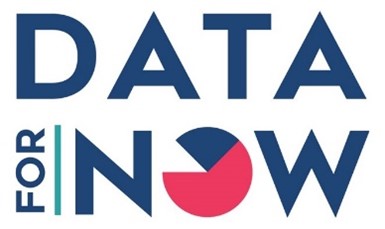
Filling priority information needs through collaboration and innovation
Sponsoring Organization
United Nations Statistics Division
Organization
Global Initiative
Supporting Organization(s)
The Data for Now initiative is co-led by the Global Partnership for Sustainable Development Data (GPSDD), Sustainable Development Solutions Network (SDSN), United Nations Development Program (UNDP), UN Statistics Division (UNSD) and the World Bank.
Data Type
Official statistics
Citizen data
Private sector data
Geospatial data
Administrative data
Artificial Intelligence
Cross cutting
Region
Global
Objective
Data for Now is a global initiative which was established to support countries in their efforts to more effectively explore innovation opportunities for timely, granular and robust data for official statistics and increase uptake and use. The initiative involves a wide set of stakeholders at both national and international level.
Since 2019, Data For Now has been successfully supporting over a dozen countries based on data needs identified by the NSO. In this context, the core partners of Data for Now herewith commit to expanding support as follows:
- Current member countries will continue to benefit from Data for Now offerings
- 10 additional countries will be supported, following the Data for Now approach
- Collaboration with academic partners will be expanded to strengthen the NSO-academia links in Data for Now countries
- Collaboration will be expanded to further include partners from civil society, private sector and regional and international organizations.
- Core partners will collaboratively strategize with a goal of securing funds that allow recipient countries to set priorities based on the most pressing needs.
What problem is this commitment aiming to solve?
National Statistical Systems (NSS) in many countries face challenges in providing timely, robust and granular data for statistics. These challenges stem from a combination of reasons including reliance on traditional and costly data collection methods, insufficient funding, limited data sharing, inadequate data infrastructure and a need to adapt skills to a rapidly evovling data ecosystem.
Input data can be provided from a variety of sources beyond surveys and censuses, such as administrative, citizen and privately held data. However, accessing many of these alternatives are not readily available due to challenges related to accessibility and quality. The NSS, therefore, must collaborate in innovative ways to explore diverse sources of data. This requires capacity development support and more adaptive funding mechanisms. In addition, users, including decision makers, can benefit from training on how to prioritize and request the statistical information needed.
Briefly describe the commitment including key activities, strategies and intended outcomes.
The country support will continue using the ‘Data for Now approach’:
- Key stakeholders in countries, led by the National Statistical Office (NSO), prioritize and define their most urgent information needs.
- NSOs, together with the Data for Now core partners and other key stakeholders and experts, explore how the information gaps can be addressed leverging innovative data sources, methods and tools
- NSOs, jointly with key national stakeholders and international partners, impement the work with filling the gaps
- New indicators or statistics are being published and NSOs and partners engage with key national users to ensure uptake and use.
The approach is initially time-consuming, but ensures collaboration, ownership and use which increases sustainability. Countries currently engaged want to expand the work while others are requesting support. The goal is to meet more of these requests while also expanding the network of partners to increase efficiency and benefit from comparative advantages.
Describe how you will monitor progress and evaluate the success of this commitment?
The commitment will be measured through the Data for Now progress reports submitted to the UN Statistical Commission as well as to donors.
Timeline
Mid-2024 to mid-2027 (3 years)
Contact Person
Faryal Ahmed
faryal.ahmed@un.org
